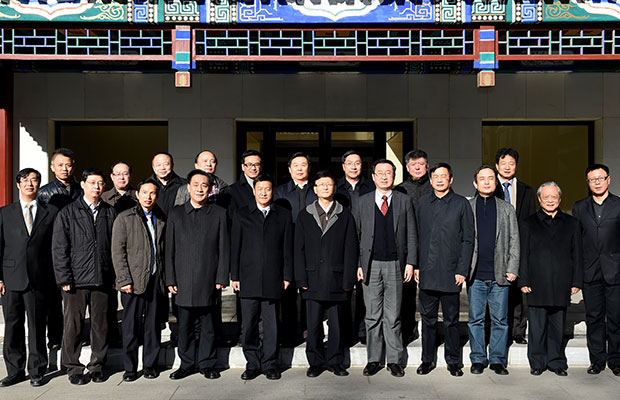Meng Jianzhu holds think tank forum on judicial reform
“The ongoing reform of the provincial-level administration of local judicial appointments can remove potential problems like localism in appointing judges and presidents of local courts to some extent, but there will be deficiencies in information collection and employment costs, ” said Zuo Weimin, a professor at Sichuan University.

Group photo of all the attendees after the forum in Beijing on Jan 8 [Photo by Hao Fan/ chinacourt.org]
Chen Weidong, a law professor with Renmin University of China, said evaluation of judicial reform is necessary for expanding it to more pilot areas. He urged the involvement of third-party organizations and multiple approaches to evaluation.
“The system is the ‘hard’ power, while culture is the ‘soft’ power in advancing China’s rule of law,” said Zhang Zhongqiu, a professor at China University of Political Science and Law, adding “the traditional culture of ancient China will help improve the sense of responsibility of judicial and political-legal functionaries and bring more humanistic care to their work. ”
“We would like to hear different opinions. Even the criticisms and opposing views that we may not agree with are helpful for our thinking,” Meng said. He urged all the departments concerned to collect opinions from all walks of life with an open mind before issuing reform policies.
“The judicial reform has come to a crucial stage, which features more difficulties, resistance and high risks. It requires us to solve them with firm belief and practical methods,” Meng said in his concluding remarks.
Other officials attending the forum included the CPLA‘s secretary-general Wang Yongqing, deputy secretary-generals Chen Xunqiu, Jiang Wei, Xu Xianming, and Wang Shuangquan, and Chen Jiping, deputy director of the China Law Society.







